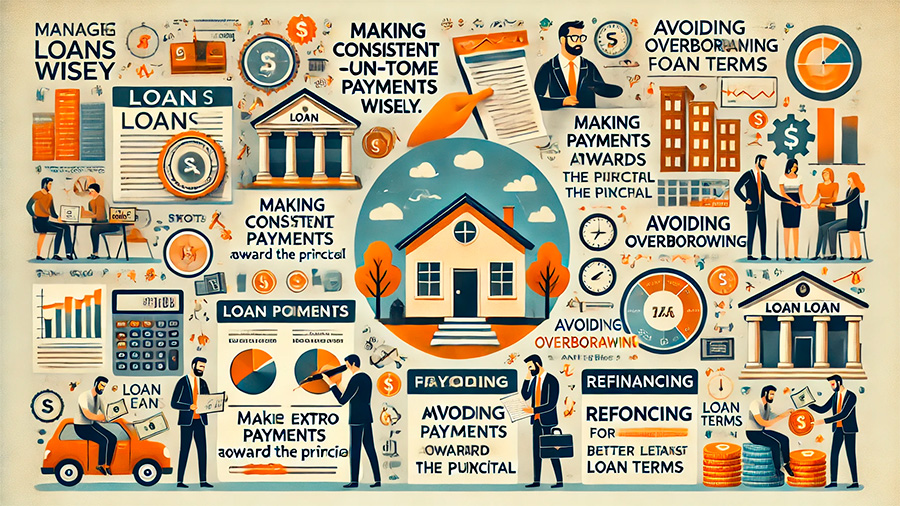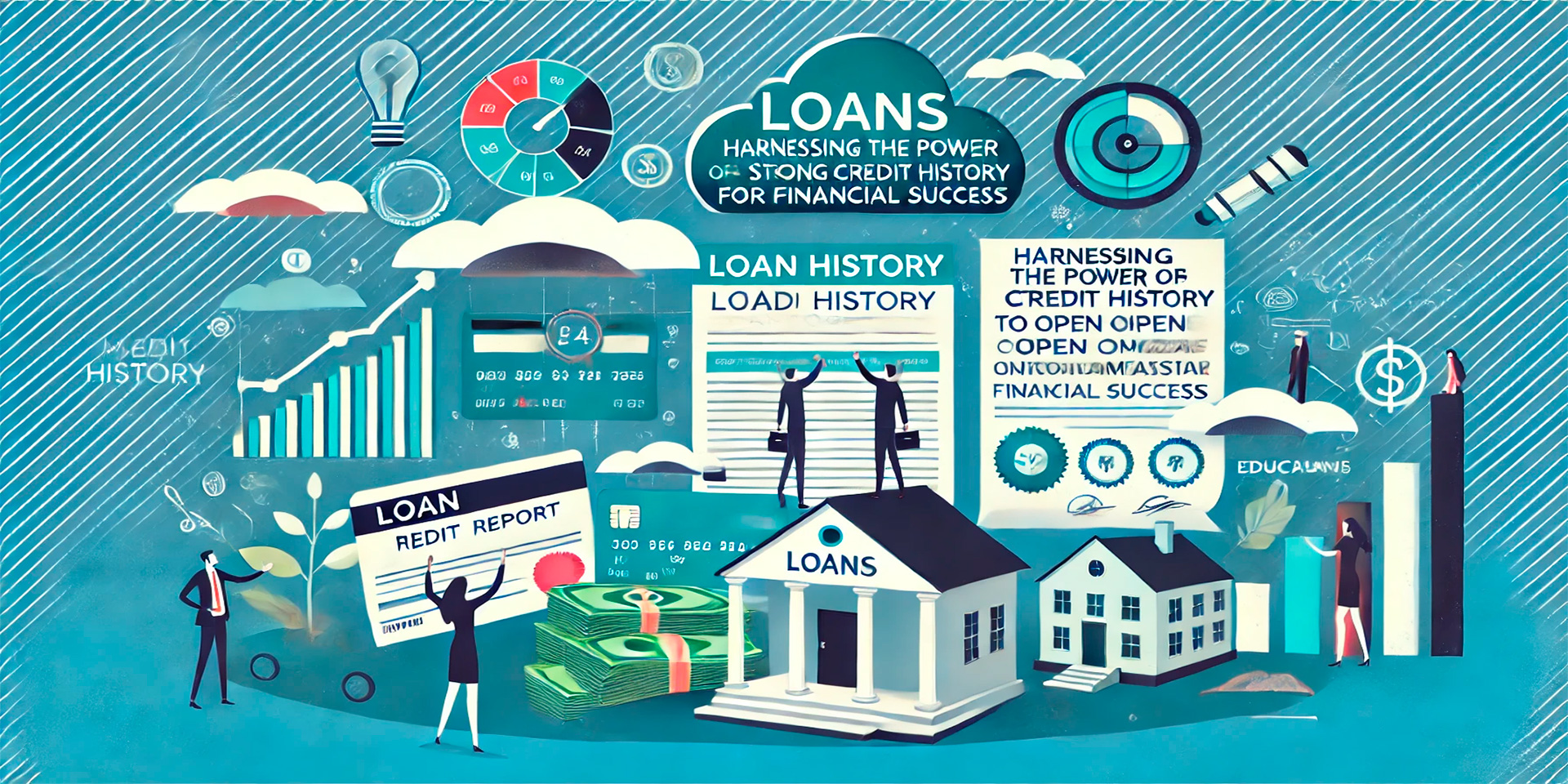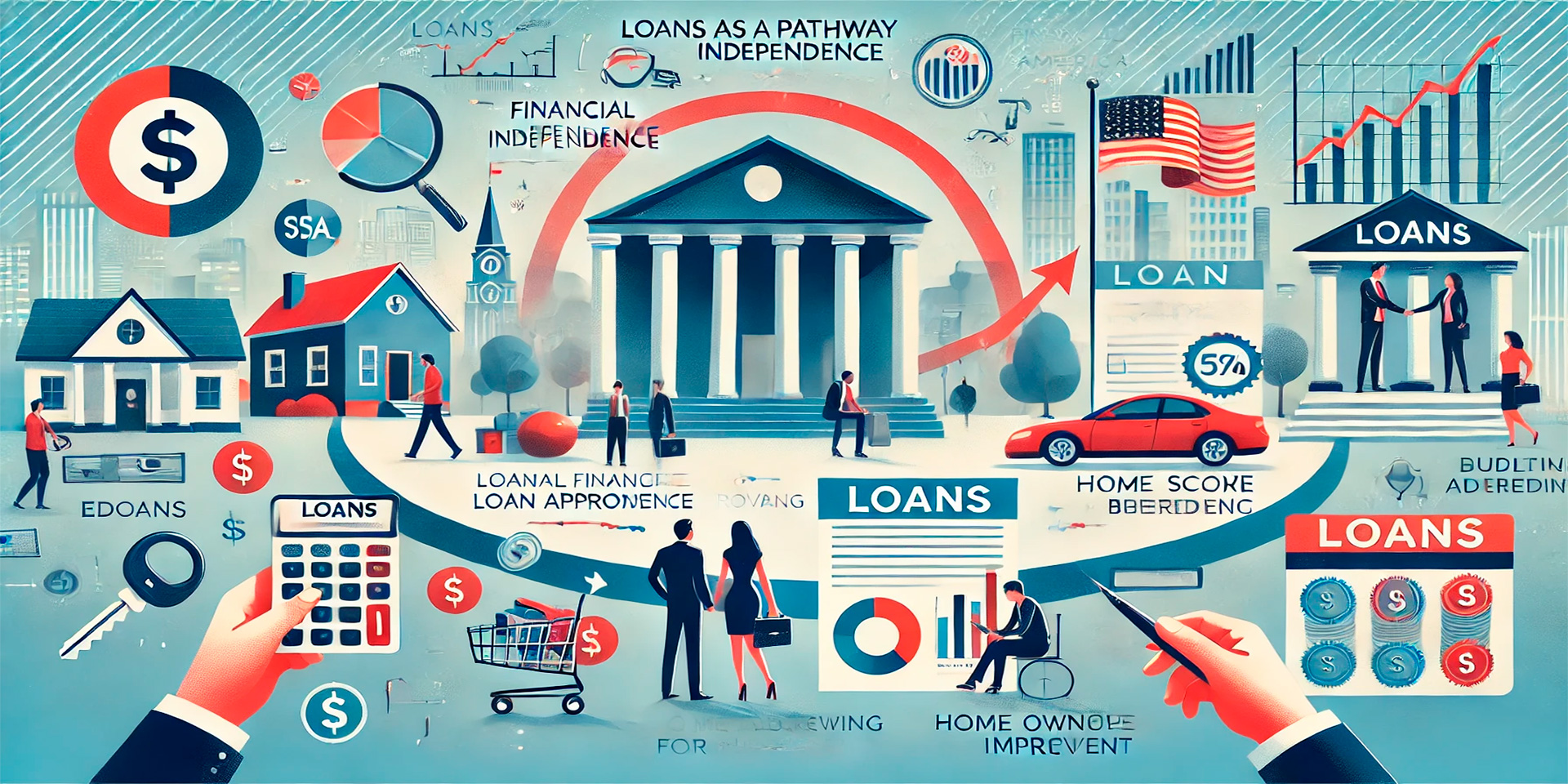In the financial landscape, loans are often viewed merely as obligations to be met, but they hold far greater potential. When used strategically, loans can become powerful tools that contribute to your financial success. Rather than being just a burden, loans can enable you to achieve significant milestones, such as purchasing a home, advancing your education, or expanding a business. By understanding how to leverage loans effectively, you can transform them from mere debts into catalysts for personal and financial growth.
The key to making loans work for you lies in understanding the different types of loans available, how they can be aligned with your financial goals, and the strategies you can employ to manage them wisely. By approaching borrowing with a strategic mindset, you can use loans to build wealth, improve your credit, and create opportunities that might otherwise remain out of reach.
The Role of Loans in Achieving Financial Goals
Loans play a crucial role in helping you achieve various financial goals. Whether it’s buying a home, funding higher education, or starting a business, loans provide the necessary capital to turn these aspirations into reality. For many, purchasing a home is one of the most significant investments they will ever make. A mortgage loan makes homeownership possible, allowing you to build equity over time and benefit from property appreciation.
Education loans, on the other hand, enable you to invest in your future by acquiring the skills and qualifications needed to advance your career. With higher education often leading to increased earning potential, student loans can be seen as an investment in your long-term financial stability. Similarly, business loans provide entrepreneurs with the capital needed to start or expand a business, opening the door to greater profitability and growth.
Each of these loans serves a specific purpose, but they all share the common goal of helping you achieve financial success. By aligning your borrowing with your financial objectives, you can ensure that loans contribute positively to your overall financial well-being.

Maximizing the Benefits of Loans
To make loans work to your advantage, it’s essential to approach borrowing with a clear strategy. This involves understanding the terms and conditions of the loan, including interest rates, repayment schedules, and any associated fees. The more informed you are about the loan, the better equipped you’ll be to make decisions that align with your financial goals.
Interest rates are a critical factor to consider, as they determine the cost of borrowing. A lower interest rate reduces the overall cost of the loan, making it more affordable to repay. Fixed-rate loans offer the stability of consistent payments, which can be beneficial for long-term planning. In contrast, variable-rate loans may start with lower payments, but they carry the risk of increasing over time, which could affect your budget.
Repayment terms are another important aspect to consider. Longer repayment terms may result in lower monthly payments, but they also mean you’ll pay more in interest over the life of the loan. Shorter terms, while requiring higher monthly payments, can save you money in the long run by reducing the total interest paid. It’s important to choose a repayment plan that fits your financial situation and allows you to pay off the loan as efficiently as possible.
Using Loans to Build Credit
One of the often-overlooked benefits of loans is their potential to help build or improve your credit. By consistently making on-time payments, you demonstrate to lenders that you are a responsible borrower, which can positively impact your credit score. A higher credit score, in turn, makes it easier to secure future loans with better terms, creating a positive cycle of financial growth.
Taking out a loan and managing it well can also diversify your credit profile, which is another factor that credit bureaus consider when calculating your credit score. A mix of different types of credit—such as credit cards, installment loans, and a mortgage—can reflect positively on your credit report, provided you manage them responsibly.
Building credit through loans is particularly beneficial for those who are new to credit or looking to repair a damaged credit history. Even a small personal loan, when repaid on time, can contribute to improving your credit score, making it easier to access larger loans in the future with more favorable terms.

Strategies for Managing Loans Wisely
Effective loan management is key to ensuring that loans work for you rather than against you. One of the most important strategies is to make consistent, on-time payments. Late or missed payments can lead to penalties, higher interest rates, and a negative impact on your credit score, which can make future borrowing more difficult and expensive.
Another strategy is to consider making extra payments toward the principal balance of the loan. This can reduce the total amount of interest you pay over the life of the loan and help you pay off the debt faster. Even small additional payments can make a significant difference over time, particularly with long-term loans such as mortgages.
It’s also wise to avoid taking on more debt than you can comfortably manage. Before taking out a loan, carefully consider whether you can afford the monthly payments without stretching your budget too thin. Overborrowing can lead to financial stress and make it more difficult to meet other financial obligations.
Refinancing is another tool that can work to your advantage, particularly if interest rates have dropped since you first took out the loan. Refinancing allows you to replace your current loan with a new one that has better terms, potentially lowering your interest rate, reducing your monthly payments, or shortening your repayment term. This can save you money and make your loan more manageable.
Leveraging Loans for Long-Term Financial Success
Loans, when used strategically, can be a stepping stone to long-term financial success. By using loans to invest in assets that appreciate over time, such as real estate or education, you can build wealth and create financial security. For example, a mortgage not only provides you with a place to live but also allows you to build equity as property values increase. Similarly, a business loan can provide the capital needed to grow your business, leading to increased profits and greater financial independence.
The key to leveraging loans for financial success is to approach borrowing with a long-term perspective. Rather than focusing solely on the immediate benefits, consider how the loan fits into your overall financial plan and how it will impact your finances in the future. By making informed decisions and managing loans responsibly, you can use borrowing as a tool to achieve your financial goals and build a secure financial future.
Conclusion
Loans can be much more than just financial obligations—they can be powerful tools for achieving success when managed wisely. By understanding the various types of loans available, their terms and conditions, and how to use them strategically, you can make loans work to your advantage. Whether you’re building credit, investing in your future, or managing debt, loans offer the potential to enhance your financial well-being and help you reach your goals. With careful planning and responsible management, you can transform loans from mere debts into valuable assets that contribute to your long-term financial success.





